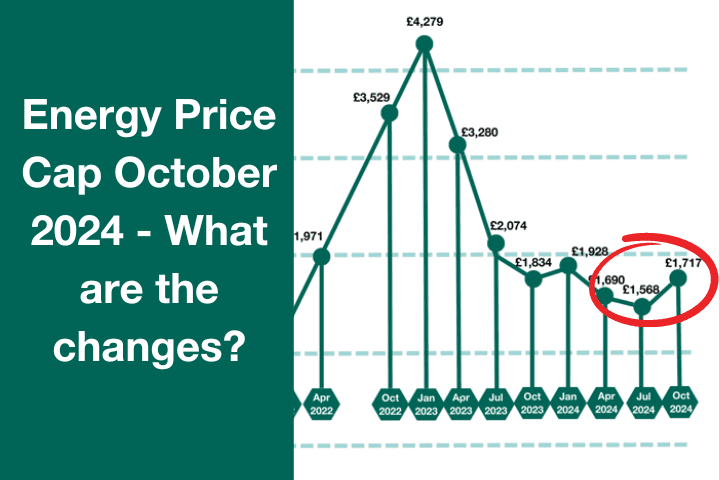Euros 2024: How Fan Travel Impacts CO2 Emissions

Table of Contents
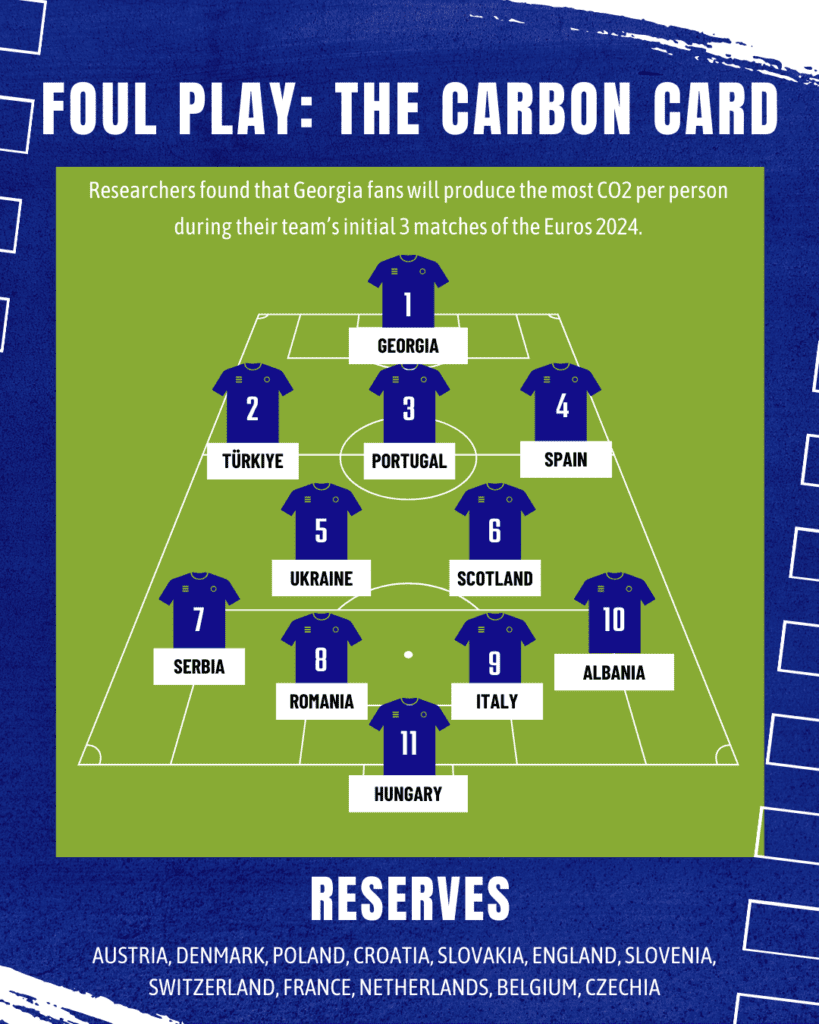
On Friday 14th June, the UEFA Euros 2024 will officially kick off at 9 pm, with hosts Germany playing Scotland at the Allianz Arena in Munich.
As Germany is hosting the third largest sporting event worldwide this year, fans from across Europe will need to travel initially to three stadiums where their team will play during the group stage, and potentially more should their team progress further in the competition.
With all of this travel, UEFA states they are “determined to be part of the solution to reduce as much as possible our impacts on the environment” having released a sustainability strategy for this year’s event. As part of the initiative, each ticket holder can receive discounted rail tickets throughout Germany, encouraging fans to use local public transport instead of driving between each match.
Whilst this is certainly a positive initiative, our renewable energy researchers at Green Building Renewables have discovered the amount of emissions that will be produced by Euro 2024 fans travelling from their respective countries to Germany to each match and back home again.
Fans of Georgia will produce over 1000kg of CO2 each in travelling to their team’s matches
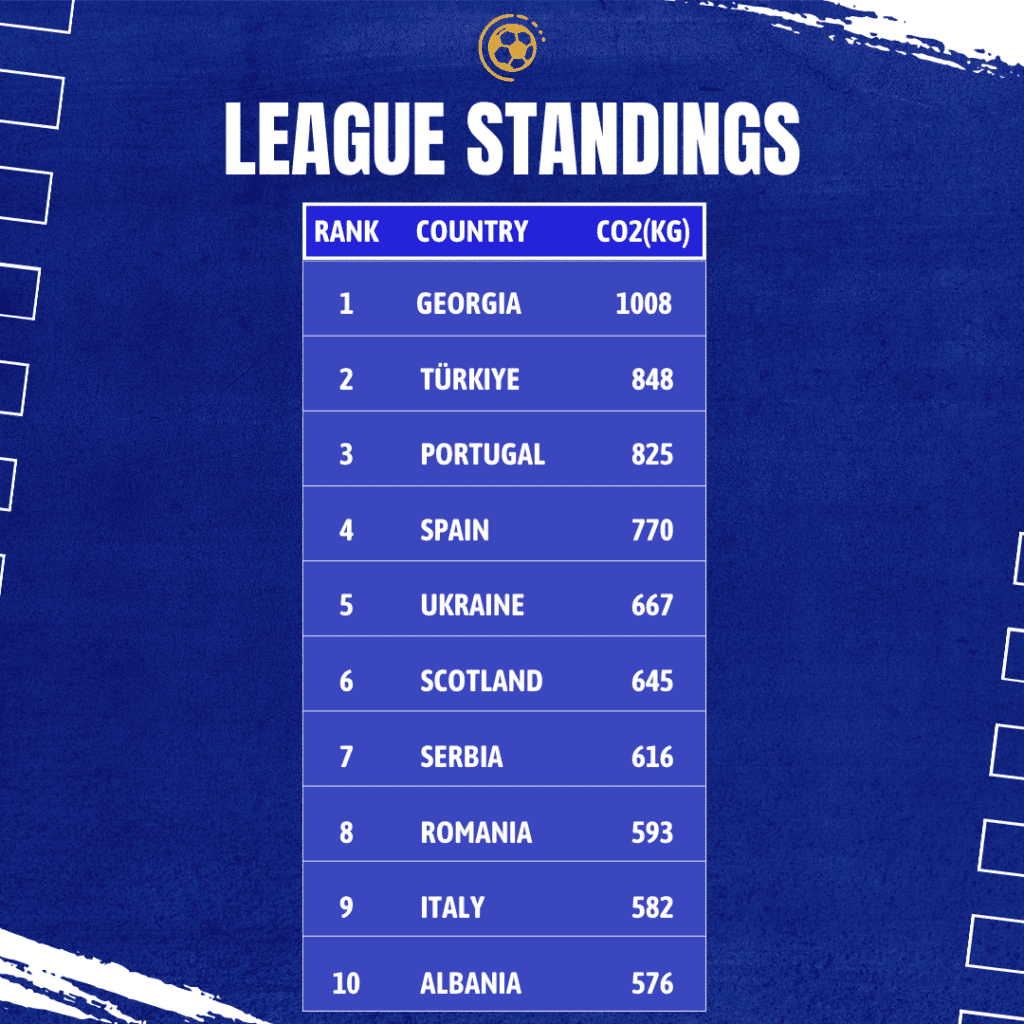
Researchers at Green Building Renewables calculated the CO2 emissions for a fan travelling by air from their home capital city to their team’s first match. We then calculated the CO2 emissions emitted per fan if they travelled to each game using trains as the method of transport. Finally, they added the emissions from the return flight to their home capital city to reveal the total kilograms produced per fan.
The results revealed that fans of Georgia, with their matches happening in Dortmund, Hamburg and Gelsenkirchen, would produce 1000kg of CO2 each due to their first three matches in the Euros. Their travels will take them on a 3662.29-mile journey from their starting airport in Tbilisi to Dortmund airport across Germany on trains to each match, back to Dortmund airport and a flight home to Tbilisi. A Georgia fan’s return flight produces 1000kg of CO2 alone due to the 9-hour non-direct flight time. Quite the journey to be made for the Georgian fans!
To reduce the CO2 emitted and flight time, Georgia fans could opt to fly to Düsseldorf with an approximate flight time of 3 hours 45 minutes and make their way to Dortmund via public transport, however, there are plenty of options fans could weigh up to make their journey.
Türkiye fans have a long journey ahead, producing the second-highest amount of CO2 per person
With a flight from Ankara to Dortmund producing the second-highest amount of CO2 per person (848kg), those supporting Türkiye are second on the list of fans producing the most CO2 this Euros season. Despite having their first two matches in Dortmund reducing the need for travel between two cities, the short-haul flight is one of the longest out of the 24 teams participating.
Fans could be looking at around a 6 to 7-hour flight with stopovers to get to Dortmund directly, however, they could opt to fly into Hamburg and make their way to Dortmund to reduce flight time. Or, choose a different option more suited to the traveller and potentially reduce the 2940.5-mile round trip.
Lisbon to Leipzig puts Portugal fans third on the table
Putting Portugal third on the table is the flight time from Lisbon to Leipzig taking anywhere between 5 to 10 or more hours, due to a lack of direct flights to take fans straight to their first match destination. With an estimated 823kg of CO2 being produced per fan from return flights alone, any fans supporting Portugal should consider the best airport to fly into Germany to reach their team’s first match, and how to further navigate the country.
Czechmate: Czechia fans top the low-carbon league
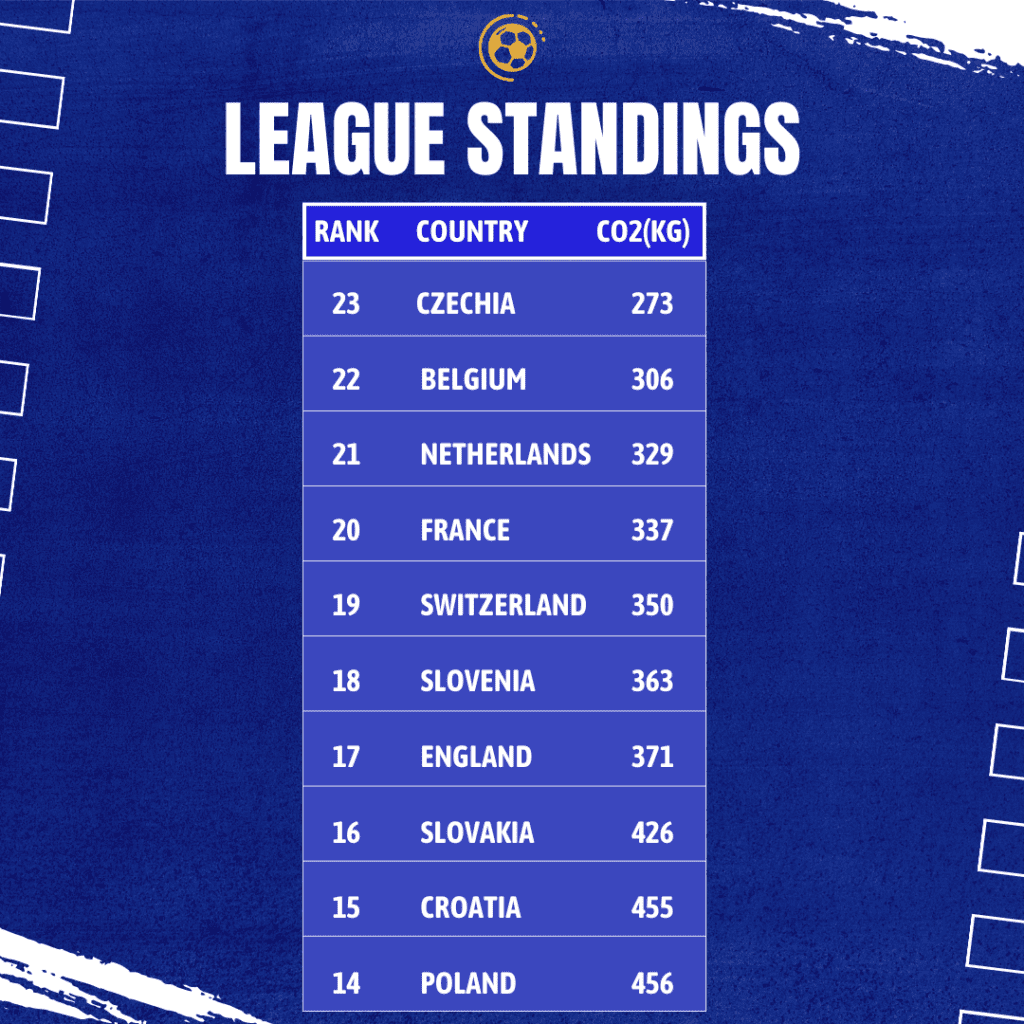
While there are a total of 24 teams competing in the Euros, researchers removed Germany from the study because it is the host country, and fans do not need to fly between cities to commute to matches. Therefore, there are 23 teams in this ranking, with position 23 being the least carbon released per fan.
Czechia fans produce the least CO2 per person in their endeavours to each match at Leipzig, Hamburg, and finally again Hamburg. This is due to a short flight time of around 3 hours, and minimal commuting needed between each city in Germany.
Whilst Scotland ranks sixth highest for CO2 produced, England sits seventeenth
Interestingly, while both Scottish and English fans travel from the UK, Scottish fans rank much higher in the table than England. Fans of the Scottish team, if flying from Edinburgh, will produce a total of 645kg of CO2 per person. This includes rail travel between their matches at Munich, Cologne and Stuttgart and the CO2 produced from the return flight home.
England fans however will produce much less CO2 with their travels with 371.87kg being the estimated emissions per fan, with flights from London Heathrow to Düsseldorf. England fans can expect to travel to Gelsenkirchen, Frankfurt and Cologne for their first 3 matches. However, there is a high potential for fans to be required to travel to further games with England as bookmakers’ favourites to win.
While there is no doubt that this international football tournament is producing a lot of carbon emissions, sustainability measures have been put in place by UEFA to reduce the impact the event will have on our planet.
The German rail rules football fans need to be aware of during the Euros 2024
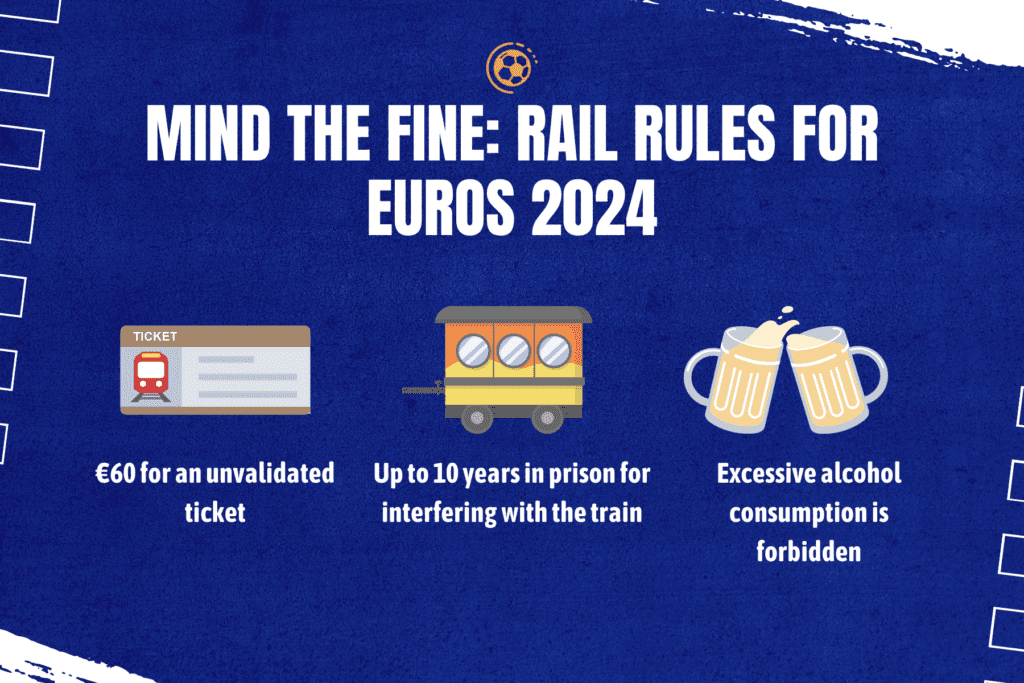
Train travel is UEFA’s preferred mode of transport for visitors to Germany during the Euros, with the organisation offering travel discounts to match ticket holders. As part of the sustainable initiative for Euros 2024, we agree that train travel is the most environmentally friendly way to accommodate the influx of fans. However, fans must be aware of certain rules when using the German rail system to avoid penalties.
- Validate your ticket before boarding to avoid a minimum €60 fine
Fans absolutely must validate their ticket before boarding a train. Official train correspondence states “The devices for validation are located at the stations next to the ticket machines. There you put the ticket in the slot and stamp it”.
If fans are caught on board a train without a validated ticket, they will be issued a fine and must pay a minimum increased charge of €60 within 14 days. This could add up significantly given the number of trains fans are predicted to use during the Euros.
- No matter how tempting, do not pull the emergency brake
If you’re with a group of friends and have been drinking, it’s well-known how a situation can escalate quickly. The more alcohol in your system, the more likely you are to do something with serious consequences, such as being encouraged to pull the emergency brake on your train.
Section 315 of Germany’s criminal code states that interfering with rail traffic safety, including falsely pulling the emergency brake, can result in a punishment of between 6 months to 10 years in prison.
- Excessive alcohol consumption is not permitted on trains or in train stations
With Germany known as having some of the cheapest alcohol costs in Europe, there is the temptation to drink and have a good time with your friends during the Euros. Football stadiums also permit fans to drink at the match, a big difference from football matches in the UK.
If fans travel via rail, the house rules for railway stations state that excessive alcohol consumption is forbidden on platforms, in the train station and on the train itself. Keep yourself in check, as fines for disorderly behaviour could set you back anywhere between €10 – €100 or more depending on the offence. Fans must also check to see if the type of train they are on permits alcohol consumption, as the rules vary drastically throughout the country.
Also not permitted are ‘playing ball’ and ‘loud playing of sound recordings’. So, fancying a kickabout yourselves? Not permitted. And the video you’ve been watching and want to show your friends? Make sure to keep the volume down.
If you want to reduce your carbon footprint, why not brush up on your knowledge of solar panels and heat pumps? Contact our renewable experts today to see how you can make your future a renewable one.
Methodology
Green Building Renewables discovered match fixtures using UEFA to list the matches for the EURO 2024 finals for each country taking part. Based on flying from each home team’s capital city to the respective airport in Germany for the first match, researchers used myclimate to calculate the CO2 emitted per person for each return flight from the home team’s capital city.
Further emissions were calculated based on fans taking the train to navigate around Germany to each match using co2kompass. Train emissions were calculated on 28/05/24, however, the CO2e emitted can fluctuate depending on the day and train route. Germany has been discounted from the study on the premise that it is the host country and fans won’t need to take flights to reach their destination.



